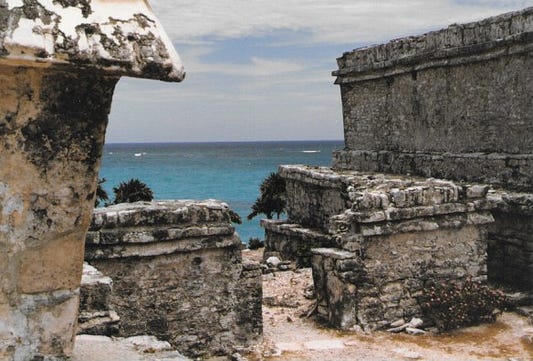Today’s Contemplation: Collapse Cometh XXI
June 16, 2021

Loss of Trust in Government: A Stage of Collapse
Today’s contemplation is prompted by an online media article that argues for cancelling Canada Day, our national ‘celebration’ for the day the nation state of Canada was ‘born’ (July 1, 1867). I raise this topic for the growing sense of ‘disappointment’ with our national government and, more generally, of all government/politicians. A feeling that seems to be fairly widespread around the globe and, of course, waxes and wanes depending on media attention and events.
I am thinking of this loss of ‘trust’ within the framework of Dmitry Orlov’s thesis of societal ‘collapse’ that is presented in his book The Five Stages of Collapse: Survivor’s Toolkit.
Orlov argues that “my five stages of collapse…serve as mental milestones…[and each breaches] a specific level of trust or faith in the status quo. Although each stage causes physical, observable changes in the environment, these can be gradual, while the mental flip is generally quite swift” (p. 14).
Here are his five stages:
a) Financial collapse where faith in risk assessment and financial guarantees is lost.
b) Commercial collapse that witnesses a breakdown in trade and widespread shortages of necessities.
c) Political collapse through a loss of political class relevance and legitimacy.
d) Social collapse in which social institutions that could provide resources fail.
e) Cultural collapse that is exhibited by the disbanding of families into individuals competing for scarce resources.
The concept of the ‘nation state’ and how the ‘patriotism’ one feels towards it is manipulated by the-powers-that-be/elite/ruling class are interesting sociological/psychological areas to explore and reflect upon. One of the more interesting books/essays I have read about the ‘State’ is Murray Rothbard’s Anatomy of the State. This particular section has stuck with me:
“The State is almost universally considered an institution of social service…[and that] we are the government…[But] the government is not ‘us.’ The government does not in any accurate sense ‘represent’ the majority of the people…Briefly, the State is that organization in society which attempts to maintain a monopoly of the use of force and violence in a given territorial area…Having used force and violence to obtain its revenue, the State generally goes on to regulate and dictate other actions of its individual subjects…[Moreover, the] State provides a legal, orderly, systematic channel for the predation of private property; it renders certain, secure, and relatively ‘peaceful’ the lifeline of the parasitic caste in society…The State has never been created by a ‘social contract’; it has always been born in conquest and exploitation…While force is their modus operandi, their basic and long-run problem is ideological. For in order to continue in office, any government (not simply a ‘democratic’ government) must have the support of the majority of its subjects…[Thus] the chief task of the rulers is always to secure the active or resigned acceptance of the majority of the citizens…For this essential acceptance, the majority must be persuaded by ideology that their government is good, wise and, at least, inevitable, and certainly better than other conceivable alternatives…Since most men tend to love their homeland, the identification of that land and its people with the State was a means of making natural patriotism work to the State’s advantage.”
The ‘State’ works hard to legitimise its position and power (their primary motivation being the control/expansion of the wealth-generating systems that provide their revenue streams). For the most part, it ‘controls’ (or, at least, heavily influences) all of those aspects of society that help to do this: legislative powers, military/security, education, money creation/distribution, taxing power, communications/media, etc..
They constantly ‘market’ themselves as representative, transparent, responsive, responsible, accountable, etc. when, in truth, the exact opposite tends to (is always?) the case. When one scratches at the surface, even gently, of the facade of what we are told is true about our governments and ‘representatives’ we find an upside down world of corruption, nepotism, self-serving interests, and manipulation. But question the status quo belief system and you are often characterised as traitorous or a conspiracy theorist because the curtain can never be drawn aside to show the emperor has no clothes. The group think and reduction of cognitive dissonance that maintains the illusion is strong.
Don’t like what the government is doing? Go vote them out of office. Problem is, citizens have zero agency via the ballot box. Nothing ever changes. The system remains. It continues to extract wealth (in terms of labour and resources) and expand ruinous policies (both environmental and social). The rich and powerful continue to pull the strings of, well, virtually everything.
And this is not some new historical phenomenon. The ‘evolution’ of complex societies and the hierarchical power structures/sociopolitical systems that develop in response to the growth of populations has often (always?) been dominated by a certain ‘caste’ of people who find themselves ‘above’ the others. This is particularly true as the society gets larger (both in numbers of citizens and geographic size) and ‘representatives’ lose touch with the ‘average’ person, socialising primarily within an echo chamber of sycophants and like-minded/educated people. As the saying goes: power corrupts; absolute power corrupts absolutely.
I’ve come to the conclusion that government, especially big government, is virtually the last place I am going look to for leadership, virtue, or even just common sense since their motivation is to subjugate the majority of us to serve their interests and that of their close supporters (primarily the rich and influential financiers), not mine, my family’s, or my community’s.